Customer Services
Copyright © 2025 Desertcart Holdings Limited


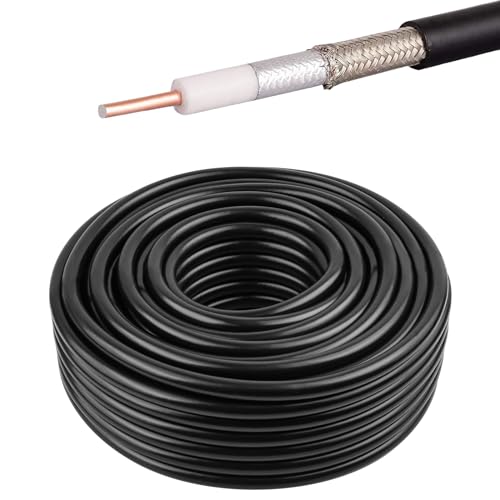
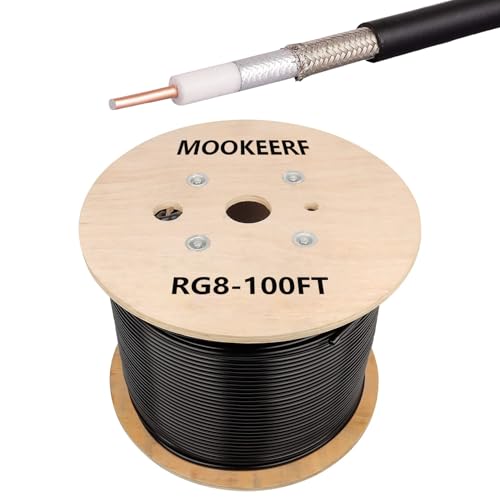
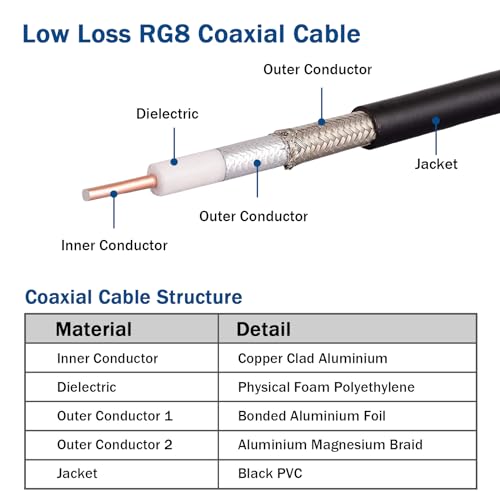
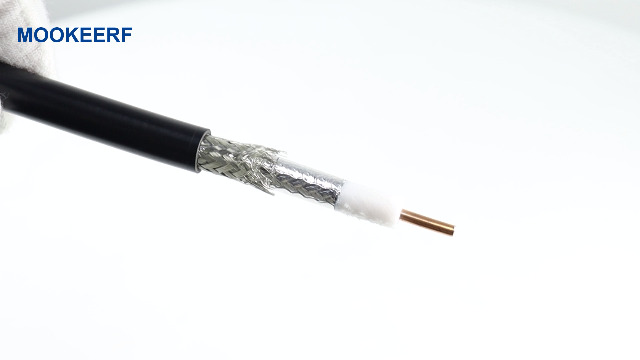
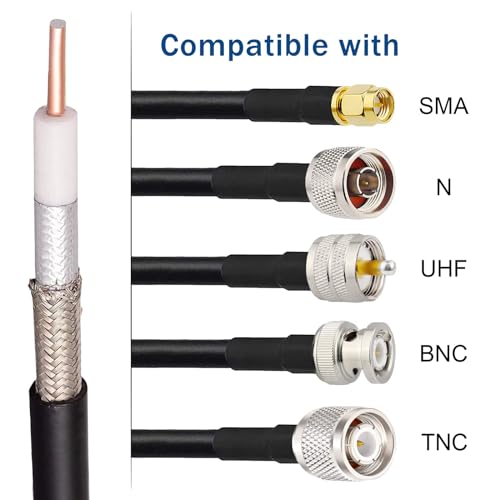
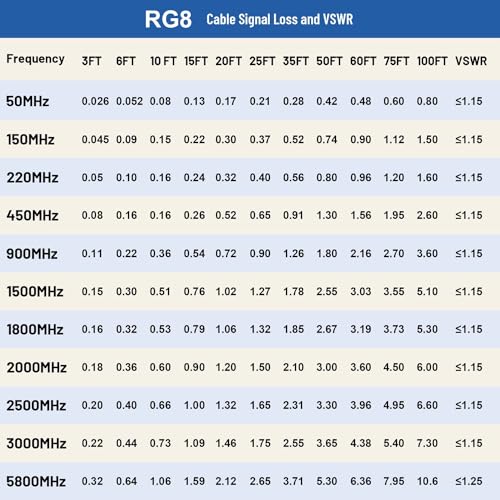
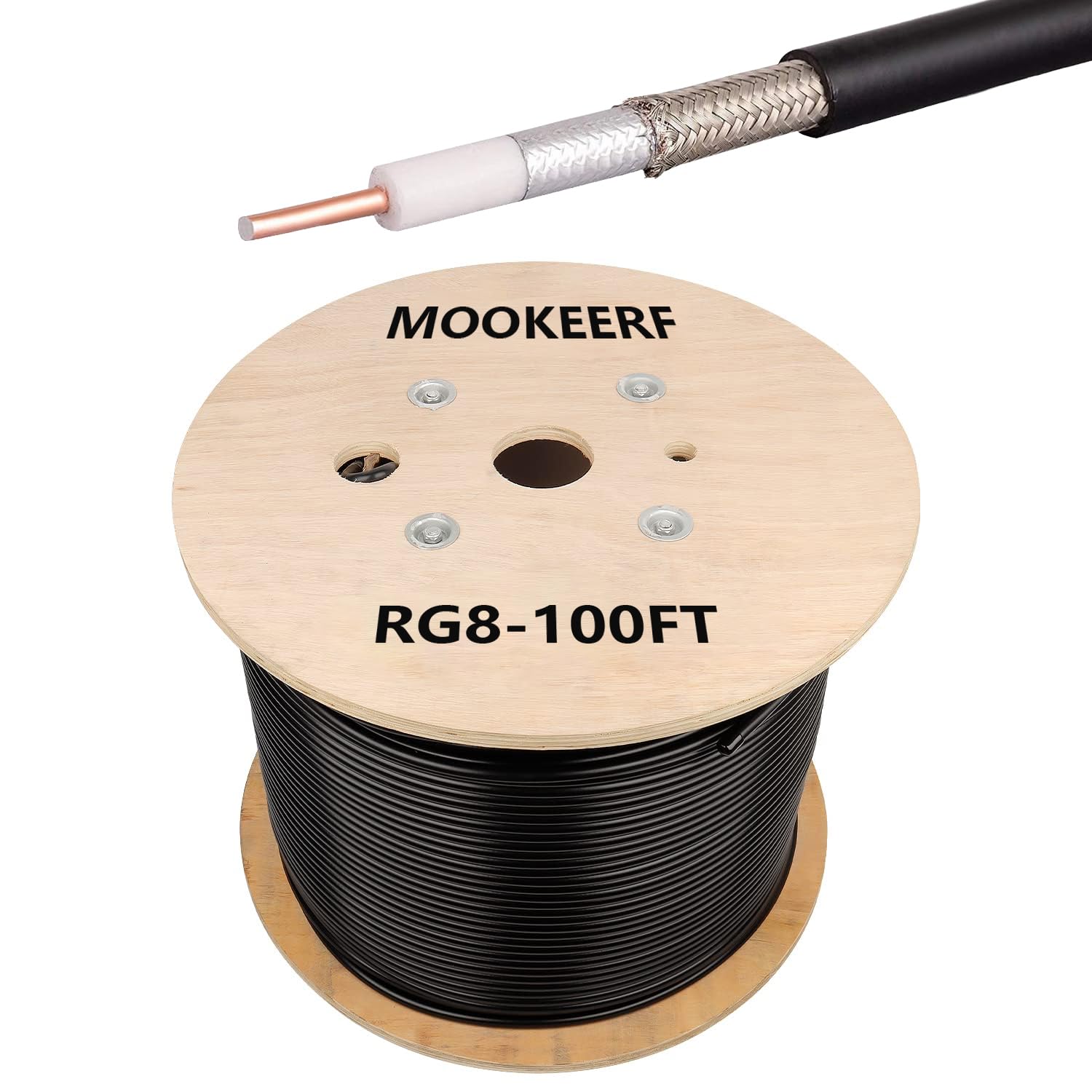
📡 Elevate your signal game—because every decibel counts!
The MOOKEERF RG8 Coaxial Cable 100ft is a high-performance, low-loss 50 Ohm cable engineered for superior signal transfer at 900MHz frequencies. Featuring a copper-clad aluminum core, aluminum-magnesium shielding, and a weatherproof PVC jacket, it’s designed for both indoor and outdoor use. Compatible with a wide range of RF systems and connectors, this cable ensures reliable, professional-grade connectivity for signal boosters, ham radios, and WiFi repeaters.


| ASIN | B0D4YM7M9N |
| Best Sellers Rank | #168,448 in Electronics ( See Top 100 in Electronics ) #920 in Coaxial Cables |
| Brand | MOOKEERF |
| Cable Type | RG8 |
| Color | Black |
| Compatible Devices | Router |
| Compatible Phone Models | Likely compatible with smartphones, specific models not listed |
| Connector Gender | Male-to-Male |
| Connector Type | RF Connector |
| Date First Available | May 23, 2024 |
| Frequency | 900 MHz |
| Indoor/Outdoor Usage | Indoor, Outdoor |
| Item Weight | 6.05 pounds |
| Item model number | RG8 |
| Manufacturer | Shenzhenshi Maoke Keji Youxiangongsi |
| Number of Items | 1 |
| Number of Pins | 2 |
| Outer Material | Aluminum foil and Aluminium Magnesium alloy |
| Package Dimensions | 14.41 x 12.32 x 4.09 inches |
| Special Feature | gps |
| UPC | 639394776101 |
| Unit Count | 100.0 Feet |
D**A
Cable de muy buena calidad y baja perdida, es el cable que se necesita en cualquier estación de radioaficionado
M**Z
Fair Quality for the Price
I ran 70 feet of this to a vertical HF antenna in my back yard. It's not rated for direct burial so ran it inside pex tubing for burial. After a few months have had no issues and testing has showed no unexpected signal loss. Worked well for my project and would buy again.
A**R
On time delivery
Cable labeled in meters not feet 000378 last number 000318 first numbered or 60 meter = only 197.8 feet 3 ft short of advertised hopefully not an issue upon routing\
A**L
Not Quite As Good As LMR-400 But...
For the price this is decent quality coax. It is double shielded with a stranded braid and aluminum foil and has a copper clad aluminum center conductor. There is also a gas injected foam dielectric. They advertise the outer jacket as being weather proof, though I doubt this is rated for direct burial. Testing with my calibrated NanoVNA this seems to be almost as efficient as Times Microwave LMR-400 (comparing attenuation with Times Microwave's coax calculator) up to around ~500MHz. Higher frequencies seem to degrade in efficiency. When looking at 900MHz, attenuation was 5.56dB. 2dB more loss than the manufacturer states on their spec sheet. For 160 Meter - 70CM ham bands, this would work just fine. If you're looking to use this for higher frequencies like 900MHz, the attenuation is quite high.
D**E
Generic RG8 coax at a good price, that works mostly as expected.
I'm giving this 5 stars, because I feel it's decent coax for the price, even though the higher end frequency attenuation is a bit higher than it should be, but I feel most people running at 900MHz and above, would be getting even higher grade coax, knowing the attenuation factor of lower quality cable. For 70cm and below, this coax should perform well for you. The center conductor is solid, and like all RG8 coax, this is not very flexible, so you'll not be making any sharp bends with this. My only real complaint, is lack of marking on the coax. It just says "RG8", and that's it. No foot markings, no manufacturer markings, no specs, just "RG8".
O**D
(Relatively) Low loss indeed!
Its not LMR400, but it certainly has fairly low losses, and what I measured with my Nano VNA is in line with the specifications included in the listing images. Its very close in spec to 9913 cable, given that the actual RG8 spec has been depreciated. Its not very flexible, so it doesn't make for very good temporary installation situations, but is great for base station use. I would say the flexibility is very similar to LMR400, even though the loss is a bit higher than LMR400. Definitely worth considering if you need some lower loss cable for a fixed installation.
S**K
Economical price on solid quality low-loss coax
RG8 is an excellent choice for long runs on a ham radio base station setup. While it is not as easy to work with as RG8X which is the 'go to' coax for most hams it has the advantage of providing lower signal loss over long runs. RG8 is is my preferred choice for long cable runs to a permanently mounted HF base station antenna.
T**X
Replacing poor performing Marine VHF cable in a mast
I will be using this to replace poorly-performing VHF cable in the mast of a sailboat. It's stiff cable, but this is an application where that won't matter as much as it's a fixed installation for the most part. The jacket label is printed as follows: RG8 Low Loss Coaxial Cable <distance in meters> I'm removing a star for the lack of specs on the cable jacket or included with it (loss per x feet/meters at a given frequency, etc). I'm sure it'll work fine for the VHF band, but I would be skeptical to install it for higher frequencies without additional testing. I'll be running it about 60', so it's not super critical, but if I had to go the full 100, I'd be inclined to test before installation. Overall a good purchase for the money.
Trustpilot
2 days ago
1 month ago